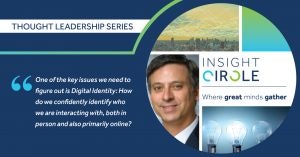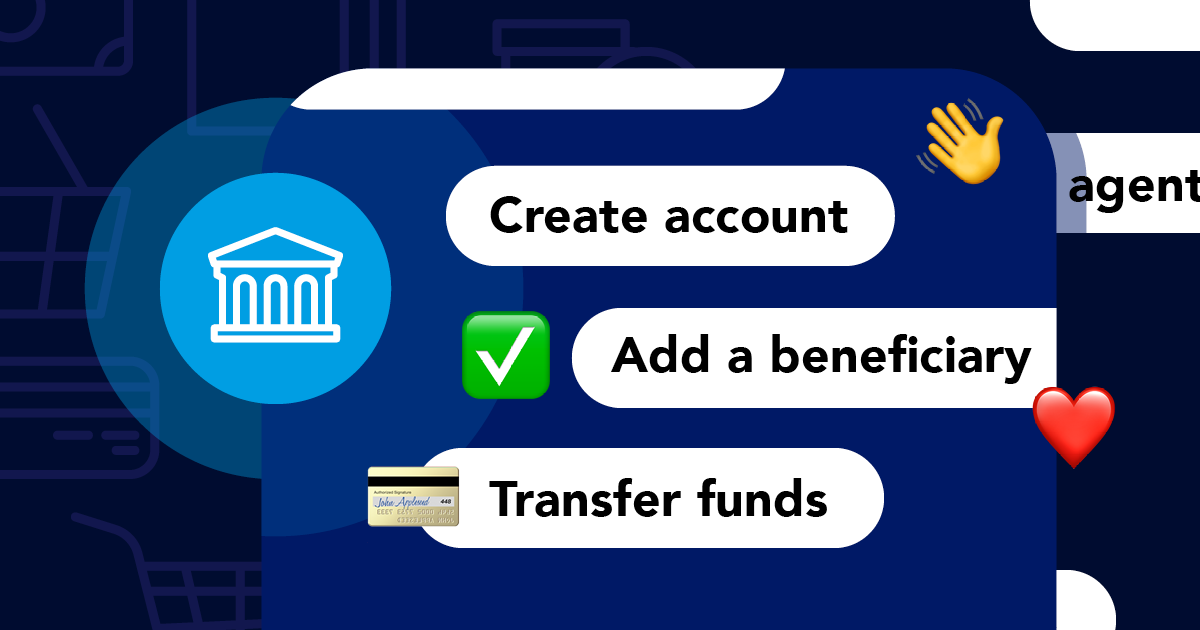
AI’s managing your finances, a 10x drop in card fraud rates, achieving full control over your own financial data and reclaiming billions and even trillions of dollars currently being lost due to inefficiencies. These were some of the thought-provoking topics we discussed with James Ronca, Senior Vice President of Enterprise Payments Strategy at Truist. Note: since the date of the interview, James Ronca is now with Viewpointe.
Career Path
Our discussion began with James describing an eye-opening experience as he began his career: “The path that led me to a career in Financial Services was serendipitous, and I saw the need for greater efficiencies in banking early in my career. When I was in college - with no money like most college students - I had some issues with payments I'd been making via checks. In order to prove I was making the payments, I had to go to the bank and ask for copies of the checks. They were happy to help, but for the fee of $18 per check, and I only had $20 in my account! My first job in banking involved the imaging of checks, to capture the check images during processing, store them in archives, and make them available for retrieval for free to any client who requested them. I also spent time in academia early in my career and since then have primarily been in Financial Services.”
The $5 Trillion Question
As with our previous guest Bruce Burke, we asked James about the $5 trillion figure mentioned by Brett King in annual loss to the U.S. economy due to an outdated payment infrastructure. James shared his perspective: “When you talk about payment inefficiencies and opportunities for dishonesty in our current models, it represents significant challenges to the economy as a whole. Regarding the $5 trillion figure, while it’s hard to put an actual number on it, I will say from a professional perspective it sounds reasonable, at least as a starting point. Just to give one example, at one point in my career I had the opportunity to do some work with Medicare payment processing and looking at fraud within the Medicare system. We're looking at a $50 billion a year issue just for fraud in the Medicare system. If you take the small piece of it associated with Medicare, it’s easy to see how the number could become very large when you also look at the broader picture and issues like ghost fraud and identity theft.”
Digital Identity
James explained how solving the issues around Digital Identity can contribute significantly towards improving the financial system: “One of the key issues we need to figure out is Digital Identity: How do we confidently identify who we are interacting with, both in person and also primarily online? The challenge is the identity of a client can be stolen or, in the case of some of the smarter fraudsters, there is ghost fraud where they create and nurture accounts for many years to commit fraud on a larger scale. There's a lot of sophistication that goes into the identity theft models these bad actors are using today and it's important for us as an industry to address them and come up with solutions to ensure that the clients accessing the resources are those who are truly authorized to do so.”
James continued: “In terms of Digital Identity, the introduction of the fingerprint aspects of Apple, Google, and Samsung’s payment solutions was significant. Previously, from an authentication standpoint, the transactions were authenticated by something you have. For example, if you have the plastic card in hand or the account number, you could engage in commerce whether you were the owner of the card or not. What the fingerprint and now facial recognition brings is it involves some physical part of you, like your face or thumbprint. This brings an additional layer of security to the transaction, which drives down fraud. Banks who have implemented it in their provisioning process have seen a significant drop in fraud rates. The fraud rates for most banks with the traditional plastic card is somewhere between 10 and 20 basis points, however, when you're talking about a card that's been provisioned to phone and has gone through client authentication, it drops down to two basis points. It's a significant drop in fraud because of the additional layer of security and control that occurs not only during the provisioning of the card to the mobile wallet but also during every single subsequent transaction.”
Data Privacy
We asked James about data privacy issues and he pointed out an interesting dichotomy: “The question around privacy and data sharing is fascinating because there's a dichotomy in terms of what people say and what they do. There are studies that say people in the United States are very worried about their privacy, yet they'll also create a Gmail account and use free services online to perform all kinds of personal transactions, whether it's getting their pay stubs delivered to their email, or to access bank accounts, or pay bills, or whatever. Companies like Google are creating profiles and anonymized models that they can then sell to advertisers. From a privacy standpoint, it has been very interesting to watch because when people talk about their banks, traditionally they are viewed as safe havens and a place where people trust that their information is safe and secured, but even this is in question now.”
James described how “data ownership” will increasingly become an issue: “I think what it really comes down to for places like the United States - and perhaps the European Union is a little bit ahead of the U.S. on this - is the idea of data ownership. People want to be able to say: ‘That's my information, therefore I own the information, and if I don't want you to have it I should be able to collect this information from you and do with it whatever I wish.’ While I don't think it's fully implemented today or even very close, in the European Union with GDPR they have set the model where banking clients will eventually be able to extract all their bank information from their bank and move to a new bank without any true friction or with little friction. In today's model, the banks are incredibly sticky when it comes to clients changing to other financial service providers. I think from a regulatory standpoint it’s going to come back to data ownership and how individuals will be able to identify their data and manage this data at a more granular level.”
Artificial Intelligence and Real-Time Payments
We asked James his thoughts on other key trends he sees impacting payments and finance in the years ahead. He noted that artificial intelligence will have a major impact, both at the personal level and system-wide: “I think a major trend to watch will be that of AI-assisted living, in other words, artificial intelligence systems and robotic processing stepping in and helping bank clients to manage their financial lives in a much cleaner and more efficient way. It’s going to be a combination of things where the AI can offer suggestions based on data analysis and data modeling. I don't see people immediately turning over all their financial decisions to a robot, but I do see them looking at tools and applications that help them make better decisions. Just as today, where people use the services of a Certified Financial Planner to help them make better decisions, it ultimately won’t matter whether these recommendations come from an individual or an AI system that's leveraging your personal data. Another key trend will be AI helping identify fraudulent transactions in real-time. AI is going to be able to improve both processing and efficiencies and thereby reduce costs.”
James also identified advancements in real-time payments, where SunTrust (now Truist) has been at the forefront, as an area to watch: “Everything that is happening around real-time payments today is very exciting. SunTrust (now Truist) has been a pioneer and leader in the real-time payment space in the U.S.” (Provide a link to Sun Trust real-time payments news or case study?)
In addition, James shared his thoughts on how he sees each of the major technology companies impacting the Financial Services space, which we will feature in a future article. Please share your reactions to James’ insights in the comments section so they can be incorporated in our ongoing conversations with him and others on these topics.
Authors
Shastri Purushotma and Jeff Leroux have interviewed 100s of senior executives and published articles about those discussions. They formed B2B Buyer Insights in late 2019 to bring this service to clients focused on thought leadership.
Jeff Leroux - Chief Executive Officer at B2B Buyer Insights
Shastri Purushotma - Chief Content Officer at B2B Buyer Insights
Step into the future of business messaging.
SMS and two-way channels, automation, call center integration, payments - do it all with Clickatell's Chat Commerce platform.








